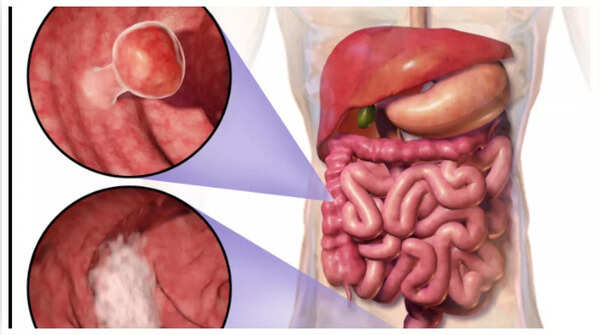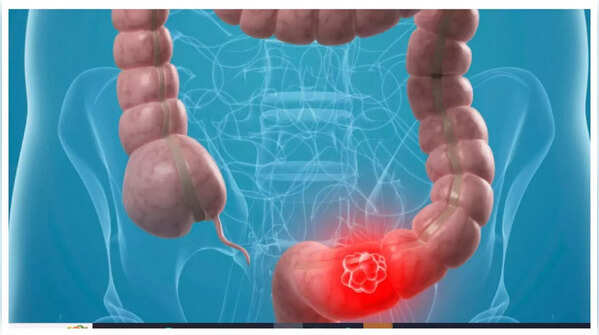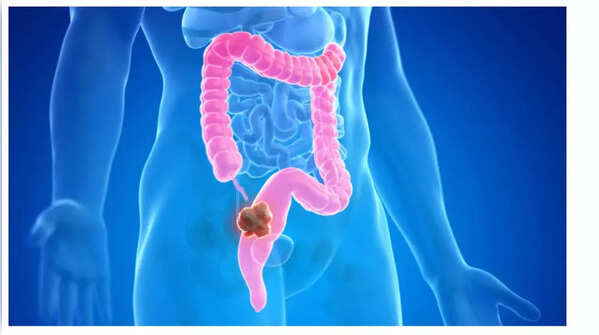Colon cancer, also known as colorectal cancer, originates in the colon or rectum. It often begins as noncancerous polyps, which can become cancerous over time. While most cases arise randomly, factors like family history, obesity, and lifestyle can elevate the risk. Symptoms can be subtle and easily dismissed as common digestive issues. However, being aware of these early warning signs is crucial for timely detection and treatment.

Alterations in bowel habits are among the earliest indicators of colon cancer. These changes may manifest as:
These symptoms can be easily overlooked or attributed to dietary changes, stress, or minor infections. However, persistent bowel changes lasting more than a few days warrant medical attention, as they could indicate a tumor disrupting normal bowel function.

The presence of blood in the stool is a concerning symptom that should never be ignored. It can appear as:
In some instances, the bleeding might be minimal and undetectable to the naked eye, potentially leading to anemia over time. While blood in the stool can be caused by various conditions, such as hemorrhoids or infections, it is essential to rule out colon cancer, especially if it occurs repeatedly or is accompanied by other symptoms.

Persistent abdominal discomfort is another early symptom that is frequently dismissed. This may include:
Such discomfort can be mistaken for indigestion or other minor digestive issues. However, if the pain is persistent and unrelated to dietary or lifestyle changes, it could signal a tumor causing irritation or blockage in the colon.

Unexplained and persistent fatigue or weakness, particularly when accompanied by other symptoms, can be a subtle indication of colon cancer. Slow, unnoticed bleeding in the colon can lead to iron deficiency anemia. A reduced number of red blood cells impairs the body's ability to transport oxygen, resulting in fatigue, shortness of breath, and weakness. While these symptoms can be attributed to stress or lack of sleep, they should be investigated further.

Unexplained weight loss is a common symptom in many cancers, including colon cancer. When the body is battling cancer, the immune system operates at an elevated level, and tumors can affect digestion and appetite. Significant weight loss without changes in diet or exercise should prompt a visit to the doctor. While often appearing later in the disease, it can sometimes be an early warning sign.

Disclaimer: This article is for informational purposes only and does not substitute professional medical advice. Always consult with a qualified healthcare provider for any health concerns.
Newer articles
Older articles
 Rishabh Pant: Greg Chappell Hails India Star as Cricket Revolutionary
Rishabh Pant: Greg Chappell Hails India Star as Cricket Revolutionary
 Google Maps to Boost Navigation Accuracy with Fused Orientation Provider API
Google Maps to Boost Navigation Accuracy with Fused Orientation Provider API
 Gavaskar Calls for Kuldeep Yadav's Inclusion in Second Test Amid Bumrah Fitness Concerns
Gavaskar Calls for Kuldeep Yadav's Inclusion in Second Test Amid Bumrah Fitness Concerns
 Global Vaccination Rates Plunge: Millions of Children Now Vulnerable to Preventable Diseases
Global Vaccination Rates Plunge: Millions of Children Now Vulnerable to Preventable Diseases
 Skin Cancer Alert: How to Identify Suspicious Moles and Early Warning Signs
Skin Cancer Alert: How to Identify Suspicious Moles and Early Warning Signs
 Suryakumar Yadav's Sports Hernia: Understanding the Injury, Recovery, and Risk Factors for Athletes
Suryakumar Yadav's Sports Hernia: Understanding the Injury, Recovery, and Risk Factors for Athletes
 Ashada Gupt Navratri 2025: Unveiling the Hidden Significance, Dates, and Rituals of the Monsoon Festival
Ashada Gupt Navratri 2025: Unveiling the Hidden Significance, Dates, and Rituals of the Monsoon Festival
 IRCTC Launches AI Chatbot for Seamless Train Ticket Booking, Refunds, and Information Access
IRCTC Launches AI Chatbot for Seamless Train Ticket Booking, Refunds, and Information Access
 Vijay Sethupathi Apologizes Amid Controversy Over Son Surya's Debut Film 'Phoenix' and Alleged Video Removal Pressure
Vijay Sethupathi Apologizes Amid Controversy Over Son Surya's Debut Film 'Phoenix' and Alleged Video Removal Pressure
 Van der Dussen to Captain South Africa's Revamped Squad in T20I Tri-Series Featuring Zimbabwe and New Zealand
Van der Dussen to Captain South Africa's Revamped Squad in T20I Tri-Series Featuring Zimbabwe and New Zealand